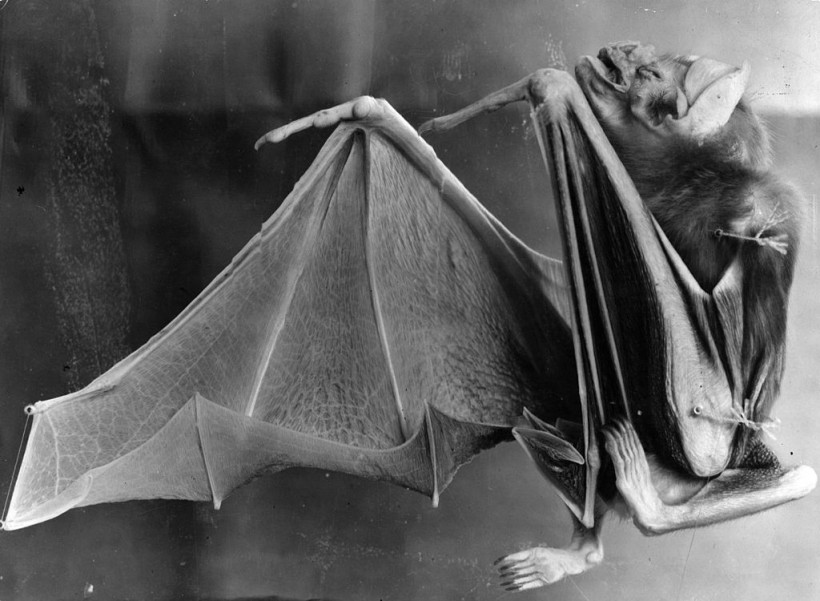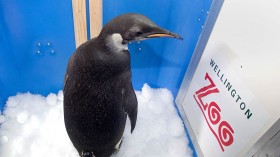A new coronavirus discovered in Russian bats has prompted experts to push for an immediate attempt to create a broad vaccination. They warn that if a lethal wildlife disease spreads to humankind, it may very well spark a whole other disease outbreak.
Resistance to Vaccine Antibodies of Russian Bats
The newest pulmonary influenza identified between many bats, identified as Khosta-2, is coated in excitation proteins that may invade living tissue via the identical nooks as SARS-CoV-2.
Moreover, troubling is its evident susceptibility to immunotherapies and serum produced in COVID-19 vaccination patients. In other sense, the existing conventional treatments cannot combat this emerging pulmonary pathogen, Science Alert reported.
Although Khosta-1 could not infiltrate living tissue by itself in the research, when a protein-eating engine was introduced to the mix, the pathogen was unexpectedly capable to enter living tissue by a unique turnstile.
Regrettably, plenty of the existing vaccinations are targeted at certain diseases that scientists believe enter living tissue or that appear to represent the greatest danger of infecting people.
In the laboratory, this bat disease was susceptible to infiltrate human liver cells via the angiotensin-converting enzyme 2 (ACE2) channels, similarly like SARS-CoV-2.
As per the scientists' conclusion covered by media site, Business Standard, the research suggests that some coronaviruses potentially infiltrate living tissue via a hitherto undiscovered channel.
Furthermore, Sarbecoviruses were already demonstrated to co-circulate in bats, thus this variance in sensor utilization between many highly associated infectious agents might very well perhaps constitute a biological evolution mechanism for infectious survival throughout the repository host group, News Medical Live Sciences noted.
During the research, serum from immunized patients was less efficient at eliminating the pseudovirus when the binding affinity areas on a SARS-CoV-2 virus were substituted with Khosta-2 associated proteins.
It's unclear if the bacterial infection that attacks these bats may spread to sentient beings in the modern environment, but preliminary studies in the lab indicate it's likely feasible.
If the Khosta-2 virus co-infects a recipient with some other coronavirus, the two infections might very well merge to create a completely special generation. However, when researchers delved at them further, group members were astonished to discover they were capable of infiltrate living tissue.
Also read: Endangered Right Whale Mom 'Snow Cone' Spotted Covered in Lice
Possible Novel Coronavirus
Skeptically, these research results underscore the crucial necessity to pursue developing novel, as well as more broadly protective, sarbecovirus immunizations.
According to Washington State University virologist Michael Letko, these strange Russian infectious agents appeared similar to several of the viruses that had previously been identified throughout the entire planet, however since they didn't appear to be resemble SARS-CoV-2, hardly anyone believed they were truly something to get enthusiastic on, WSU Insider updated.
When scientists in Russia discovered Khosta-2 and similar bat bacterial infection, Khosta-1, in 2020, neither infection appeared to be especially harmful.
Presently, organizations are working to develop a vaccine that not only safeguards towards the upcoming type of SARS-2, yet also towards sarbecoviruses in broad sense.
Aside from the premise that both diseases correspond to the exact similar category of pulmonary infections coronaviruses classified as sarbecoviruses, immune responses produced from the omicron variation were ineffective towards the bat infection, which was shown to the study posted under PLOS Pathogen.
Khosta-2 was discovered amongst lesser horseshoe bats in Russia's Sochi National Park, a species also widespread in Europe and North Africa.
As per The Weather Channel, the sooner researchers act, the greater our chances of preventing future lethal coronavirus to emergence and spread. If this highly contagious repository spreads to people, conventional coronavirus vaccinations that primarily target the ACE2 interface will also no doubt be ineffective.
Related article: Researchers in Southern Ethiopia Deciphers of How Climate Change Affects Human Evolution in Eastern Africa
© 2024 NatureWorldNews.com All rights reserved. Do not reproduce without permission.




![Climate Change is Reducing Dust Levels Worldwide as Arctic Temperature Warms [Study]](https://1471793142.rsc.cdn77.org/data/thumbs/full/70320/280/157/50/40/climate-change-is-reducing-dust-levels-worldwide-as-arctic-temperature-warms-study.jpg)

